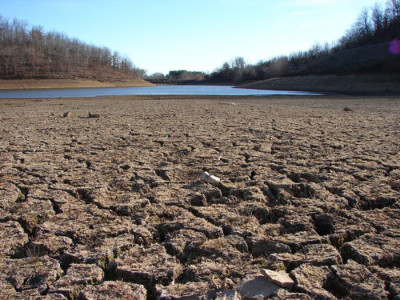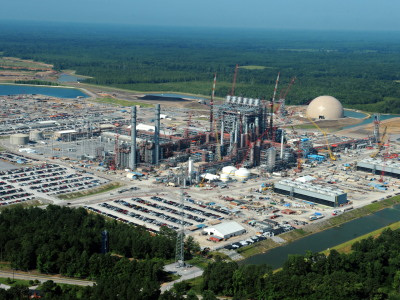Region: National
Lost in the Ozone Again
The Ozone Standard, Regulatory Pragmatism, and the Rule of Law
EPA issued a new regulation last week that mandates a reduction in ozone levels to 70 ppm from the current 75 ppm (originally set by the Bush Administration). The new regulation was immediately attacked by industry and environmentalists. According to industry, the regulation will be a job-killing burden on the economy. According to environmentalists, …
Continue reading “Lost in the Ozone Again”
CONTINUE READINGCalifornia and Other Western States See Barriers to Protecting Streams
A new report highlights twelve western states’ efforts to restore stream flows using environmental water transfers
Unnaturally low flows in rivers and streams throughout the western United States have threatened fish and other aquatic species for decades. But restoring flows has proved a significant and complex challenge. A recent report prepared for the National Fish and Wildlife Foundation by Stanford University’s Water in the West Program documents twelve western states’ efforts …
Continue reading “California and Other Western States See Barriers to Protecting Streams”
CONTINUE READINGEvangelicals Versus Property Rights
Guess who invented the idea that property rights evolve with changing social values?
Today, evangelical Christians tend to be aligned with conservatives in defense of private property. But that was not always true. In the 19th and early 20th Centuries, evangelicals launched a major attack on property rights. As historian John Compton documents in a recent book, they also adopted the idea of the “living Constitution” to justify …
Continue reading “Evangelicals Versus Property Rights”
CONTINUE READINGExploring Potential Challenges to EPA’s New Source Performance Standard: PART III
CCS for coal power plants, but not natural-gas power plants?
This post is the third in a mini-series (see first and second posts) exploring likely legal challenges to the New Source Performance Standard (NSPS) for power-plant greenhouse gas emissions under Clean Air Act § 111(b), and how those challenges might affect the Clean Power Plan. In my first post on EPA’s New Source Performance Standard …
Continue reading “Exploring Potential Challenges to EPA’s New Source Performance Standard: PART III”
CONTINUE READINGIs CCS the “best” system of emission reduction for coal-fired power plants?
Exploring Potential Challenges to EPA’s New Source Performance Standard: PART II
This post is the second in a mini-series (see first post) exploring likely legal challenges to the New Source Performance Standard (NSPS) for power-plant greenhouse gas emissions under Clean Air Act § 111(b), and how those challenges might affect the Clean Power Plan. In my first post on EPA’s New Source Performance Standard (NSPS) for …
Continue reading “Is CCS the “best” system of emission reduction for coal-fired power plants?”
CONTINUE READINGEnvironmental Law as a Three-Legged Stool
Ad. Law provides the process and institutions, while Torts and Property concepts underly the substance.
Environmental law is a formidable tangle of long, complicated statutes and sometimes arcane judicial doctrines. But underneath all that, I’d like to suggest, there’s a very simple structure, rooted in legal basics. The procedural and structural framework for environmental law is provided by administrative law, supplemented in a few areas like Superfund by ordinary civil …
Continue reading “Environmental Law as a Three-Legged Stool”
CONTINUE READINGThe Future of Fire Policy
Climate change will require reconsideration of how we manage fire
It has been a brutal fire season here in California. It’s been brutal in part because of a historically bad drought. But unfortunately, the end of the drought (when it comes) will not be the end of our fire problems. Those fire problems are the result of long-term, human-caused trends that will only continue: climate …
Continue reading “The Future of Fire Policy”
CONTINUE READINGFaculty Openings in Environmental Law
Some schools are still formulating their hiring plans, but others are clearly in the market.
Ax in past years, I’ve been collecting information about faculty openings in environmental, natural resources, and energy law. I’ll update this as I receive more information. Here’s what I’ve got so far: University of Delaware is seeking a Distinguished Named Professorship in Energy and the Environment. Environmental law scholars are encouraged to apply (UD has …
Continue reading “Faculty Openings in Environmental Law”
CONTINUE READINGIs Carbon Capture & Sequestration (CCS) the Biggest Threat to the Clean Power Plan?
Exploring potential challenges to EPA’s New Source Performance Standard: PART I
This post is the first in a mini-series exploring likely legal challenges to EPA’s New Source Performance Standard (NSPS) for power-plant greenhouse gas emissions under Clean Air Act § 111(b), and how those challenges might affect the Clean Power Plan. I will leave detailed exploration of the Clean Power Plan for later posts, but suffice …
CONTINUE READINGLast Week in Climate Change
Is climate action finally starting to develop momentum?
There was some good news last week for those of us who worry about the future of the planet,. Both inside and outside of Congress, Pope Francis spoke about the need to protect the environment and address climate change. Some conservative Catholics are eager to dismiss this as simply another misguided opinion by a left-learning Pope. But …
Continue reading “Last Week in Climate Change”
CONTINUE READING










